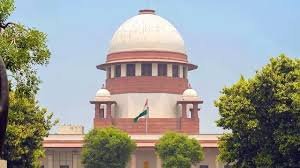
In a significant development, the Supreme Court of India has revived criminal proceedings against Kerala legislator and former transport minister Antony Raju in a nearly three-decade-old case. The case, which dates back to 1994, involves allegations that Raju, then a junior lawyer, tampered with crucial evidence in a drug trafficking case in order to help his client, an Australian national, avoid conviction.
The incident traces back to 1990 when Raju’s client, Andrew Salvatore, was arrested at Thiruvananthapuram airport with 61.5 grams of charas hidden in his underwear. Salvatore had been convicted under the Narcotic Drugs and Psychotropic Substances (NDPS) Act and sentenced to 10 years in prison. However, the case took a turn when the Kerala High Court quashed Salvatore’s conviction in 1991, citing discrepancies in the prosecution’s evidence, particularly the underwear presented as evidence, which did not fit the accused.
Upon investigation, it was revealed that the underwear, which had been deposited as evidence with the trial court, was allegedly tampered with. Authorities accused Raju and a trial court official of colluding to alter the evidence to benefit the defendant. The state then filed a case against both men, but the matter was later quashed by the Kerala High Court in 2023, which held that the necessary conditions for criminal action were not met.
However, the Supreme Court recently overturned the High Court’s ruling, directing the revival of the criminal case. The bench, comprising Justices CT Ravikumar and Sanjay Karol, expressed serious concern over the allegations of evidence tampering and the potential erosion of public trust in the judicial system. In its ruling, the Court emphasized that such actions undermine the integrity of the judicial process and compromise the fairness essential for the justice delivery system.
The bench also noted the “peculiar” circumstances of the case, where evidence was allegedly removed from judicial custody and altered before being substituted with the original. Justice Karol, in his judgment, observed that the High Court’s quashing of the case was unwarranted and emphasized the need for accountability in such serious matters that strike at the very foundation of the judicial system.
Raju, who has been an influential political figure in Kerala, heads the Janadhipathya Kerala Congress party, which is part of the state’s ruling Left Democratic Front (LDF) alliance. He was first elected as a Member of the Legislative Assembly (MLA) in 1996, long after the alleged incident. Raju also served as Kerala’s Transport Minister from 2021 until his removal from the cabinet in December 2023.
While Raju challenged the revival of the case, claiming that only an interested party could file an appeal, the Supreme Court disagreed, asserting that it was within its jurisdiction to review the correctness of the High Court’s decision.
The case has once again reignited debates over the integrity of the judicial process and raised serious questions about the abuse of power and legal procedures. With the Supreme Court’s order, the trial is expected to proceed in the Nedumangad Judicial Magistrate Court, which has been directed to complete the trial within one year, given the long history of delays in the case.
As of now, Antony Raju is scheduled to appear in court on December 20, 2024, to face the charges in this high-profile case that has rocked the state’s political and legal landscape. The revival of the case underscores the importance of upholding justice and accountability, no matter how much time has passed.
Sources By Agencies

